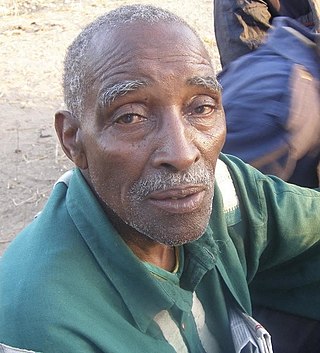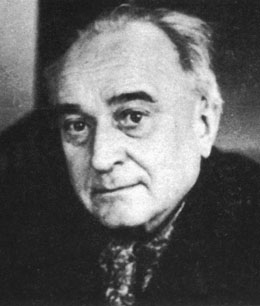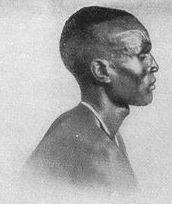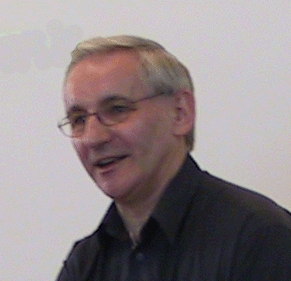
Vodun is a religion practiced by the Aja, Ewe, and Fon peoples of Benin, Togo, Ghana, and Nigeria.

The Lemba, Remba, or Mwenye are a Bantu-speaking ethnic group which is native to Zimbabwe and South Africa, with smaller branches in Mozambique and Malawi. According to Tudor Parfitt, when he first worked in the field among the Lemba in South Africa, Zimbabwe and Malawi in the 1980s, they numbered an estimated 50,000. Some of their religious practices and beliefs are similar to Jewish and Islamic practices and beliefs. According to Parfitt, the Lemba claim that they once had a book which described their traditions but it was lost.

Sir Edward Evan Evans-Pritchard FBA FRAI was an English anthropologist who was instrumental in the development of social anthropology. He was Professor of Social Anthropology at the University of Oxford from 1946 to 1970.

The Dinka tribe are a Nilotic ethnic group native to South Sudan with a sizable diaspora population abroad. The Dinka mostly live along the Nile, from Bor to Renk, in the region of Bahr el Ghazal, Upper Nile, and the Abyei Area of the Ngok Dinka in South Sudan.
Religion in Africa is multifaceted and has been a major influence on art, culture and philosophy. Today, the continent's various populations and individuals are mostly adherents of Christianity, Islam, and to a lesser extent several traditional African religions. In Christian or Islamic communities, religious beliefs are also sometimes characterized with syncretism with the beliefs and practices of traditional religions.
Black theology, or black liberation theology, refers to a theological perspective which originated among African-American seminarians and scholars, and in some black churches in the United States and later in other parts of the world. It contextualizes Christianity in an attempt to help those of African descent overcome oppression. It especially focuses on the injustices committed against African Americans and black South Africans during American segregation and apartheid, respectively.

Irving R. Hexham is an English-Canadian academic who has published twenty-three books and numerous articles, chapters, and book reviews. Currently, he is Professor of Religious Studies at the University of Calgary, Alberta, Canada, married to Karla Poewe who is Professor Emeritus of Anthropology at the University of Calgary, and the father of two children. He holds dual British and Canadian citizenship.

The traditional beliefs and practices of African people are highly diverse beliefs that include various ethnic religions. Generally, these traditions are oral rather than scriptural and are passed down from one generation to another through folk tales, songs, and festivals, and include beliefs in spirits and higher and lower gods, sometimes including a supreme being, as well as the veneration of the dead, and use of magic and traditional African medicine. Most religions can be described as animistic with various polytheistic and pantheistic aspects. The role of humanity is generally seen as one of harmonizing nature with the supernatural.

Christianity in Africa first arrived in Egypt in approximately 50 AD, reached the region around Carthage by the end of the second century. In the 4th century, the Aksumite empire in modern-day Ethiopia and Eritrea became one of the first regions in the world to adopt Christianity as their official religion. The Nubian kingdoms of Nobatia, Makuria and Alodia followed two centuries later. Important Africans who influenced the early development of Christianity include Tertullian, Perpetua, Felicity, Clement of Alexandria, Origen of Alexandria, Cyprian, Athanasius and Augustine of Hippo.
Baptists in the United States make up a large number of all Baptists worldwide. Approximately 11.3% of Americans identify as Baptist, making Baptists the third-largest religious group in the United States, after Roman Catholics and non-denominational Protestants. Baptists adhere to a congregationalist structure, so local church congregations are generally self-regulating and autonomous, meaning that their broadly Christian religious beliefs can and do vary. Baptists make up a significant portion of evangelicals in the United States and approximately one third of all Protestants in the United States. Divisions among Baptists have resulted in numerous Baptist bodies, some with long histories and others more recently organized. There are also many Baptists operating independently or practicing their faith in entirely independent congregations.

Mozambique is a Christian majority country, with Islam being a minority faith practiced by around 17.5% of the population as of 2020. The faith was introduced by merchants visiting the Swahili coast, as the region was part of the trade network that spanned the Indian Ocean. This later led to the formation of several officially Muslim political entities in the region.

Religion in South Africa is dominated by various branches of Christianity. South Africa is a secular state with a diverse religious population. Its constitution guarantees freedom of religion. Many religions are represented in the ethnic and regional diversity of the population.

In geography and cartography, hemispheres of Earth are any division of the globe into two equal halves (hemispheres), typically divided into northern and southern halves by the equator or into western and eastern halves by an imaginary line passing through the poles[1]. Hemispheres can be divided geographically, culturally, religiously, or based on prominent geographic features. Understanding these divisions is essential for studying Earth's geographic distribution, cultural differences, and the prominence of various geographic features.

Christianity is the most widely professed religion in South Sudan, with significant minorities of the adherents of traditional faiths and Islam.
John Dow Fisher Gilchrist (1866–1926) was a Scottish ichthyologist, who established ichthyology as a scientific discipline in South Africa. He was instrumental in the development of marine biology in South Africa and of a scientifically based local fishing industry.
Hausa animism, Maguzanci or Bori is a pre-Islamic traditional religion of the Hausa people of West Africa that involves magic and spirit possession. While only a part of the Hausa people converted to Islam before the end of the 18th century, most of the adherents of the religion did the same between the jihad started by the Islamic reformer Usman dan Fodio around 1800 and the middle of the 20th century, while a small minority converted to Christianity. Religious affiliation to this traditional religion is virtually nonexistent at the beginning of the 21st century; however, Hausa animism and Islam among Hausa people have coexisted for centuries, and some practices related to animism carry on locally.

Kongo religion encompasses the traditional beliefs of the Kongo people. Some smaller ethnic groups in the region, like the Chokwe, have adopted Bakongo spirituality. The faith bases itself on a complex animistic system and a pantheon of various gods and spirits. The principle creator of the world is Nzambi Mpungu, the sovereign master. Belief in Nzambi Mpungu, who gave birth to all the other gods, the world and spirits who inhabit it, is common, but Ancestor worship builds up the main religious beliefs. Healers, known as Nganga, try to mediate between the spirit realms and the physical world, as well as heal followers' minds and bodies. Mediatory roles like being a Nganga require legitimization from the other world of spirits and ancestors. The Bakongo cosmos is split between two worlds: the top half representing the physical world, or ku nseke and the bottom half representing the spiritual world, or ku mpèmba.
Lilian Margaret Passmore Sanderson was an English teacher and educationalist who became known for her research on female genital mutilation, particularly in Sudan. She was the author of Against the Mutilation of Women: The Struggle Against Unnecessary Suffering (1981) and Female Genital Mutilation, Excision and Infibulation: A Bibliography (1986).
Sarojini Nadar is a South African theologian and biblical scholar who is the Desmond Tutu Research Chair in Religion and Social Justice at the University of the Western Cape.












